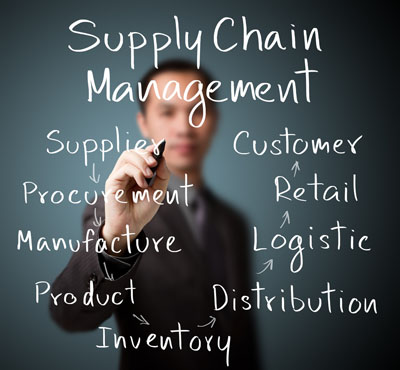Over the years, working for and with numerous manufacturing companies, I’ve seen many supply chain practices that cost companies money. Over the next several weeks, I’ll outline these issues and discuss some ideas around how to avoid these practices. You can find the previous posts here:
- Reason #1: Offshoring without getting the full picture
- Reason #2 Poorly executed or non-existent sales and operations planning
- Reason #3 Not having end-to-end supply chain visibility
- Reason #4 Making key decisions by modelling the supply chain in Excel
- Reason #5 Not having a supply chain risk management process
- Reason #6 Not effectively managing inventory
- Reason #7 Making decisions based on bad data (supply chain data accuracy)
- Reason #8 Keeping supply chain information in silos
- Reason #9 Relentless pursuit of one supply chain metric at the expense of other metrics
Reason #10: Failure to adequately train your supply chain planning staff
When you think about it, your supply chain planning team is responsible for making decisions that can impact millions of dollars. A bad decision can result in missed orders, significant inventory, or scrapped materials. Yet, when you look at the background of many supply chain planning workers, you’ll find a huge variation in education and experience. From people with a basic education that worked their way up from the shop floor, to people with engineering degrees that fell into supply chain planning, to business majors who have never been to the factory floor, to recent graduates with a supply chain planning background, but don’t have real-life experience on how manufacturing and supply chains work. Having worked with a cross section of these people, I’ve seen the very best and the very worst. The very best include people that not only understand supply chain from end-to-end, but can also come up with creative solutions beyond what the typical supply chain education can prepare you for. The worse have me wondering why they decided on a career in supply chain at all. These are the planners that don’t know and don’t care how supply chain works. They do their jobs moving inventory from here to there, opening orders that the system says should be opened, cancelling orders that the system says should be cancelled, yet never questioning why or whether it makes sense. Why is this a problem? Le
t’s look at a quick example. Have you ever seen a situation where some result from a system– whether a bill from the phone company, a stock report or MRP recommended actions have been messed up? It might be a programmatic error but more likely it is caused by bad data. So imagine that you are a supply planner and the MRP report is telling you to increase orders 10x for an expensive component. Do you do it? The computer told you to, right? If you are one of those planners that just blindly execute what the system says to do, then you probably would order it. However, better supply chain planners might question that recommendation. They use their knowledge of how planning systems work to peg up to find the source of the change and determine that someone changed the wrong record causing the change and confirm with the planner that the change was intended. By doing this, they could potentially save the company millions of dollars in excess inventory. There will always be people that just want to do things the way they always have. Don’t want training and aren’t interested in learning. However, there are also those people who have a real drive to learn and would like to understand supply chain better. These are the folks you want to do everything in your power to give them the education they need. While traditional supply chain training isn’t the only way to get really good at supply chain (I’ve met some planners that instinctively “got” supply chain – and knew their way around the system better than most) it certainly helps to have a good foundational knowledge of supply chain concepts. One very good source of supply chain training is APICs (American Production and Inventory Control Society). They have multiple resources as well as two certification programs; CPIM (Certified in Production Inventory Management) and CSCP (Certified Supply Chain Professional). CPIM is broken out in to 5 modules that each have an optional instructor led review course. At the end of each module, the student is encouraged to write the exam. Once all 5 exams have been passed, you achieve your CPIM certification. CSCP consists of three workshops followed by an exam for certification. Many companies have paid for their employees to achieve their certification and some have even brought instructors into the workplace to do the certification training there. In reality, providing training in this way is a win-win for the company and the employee. The company gains by having better educated planners, the employee gains by having a certification that is recognized my many companies around the world. Supply chain is a very complex world. Yet, it’s one place where practitioners can have a huge effect on the business yet have minimal education…and I really think that’s kind of cool! But your supply chain team could be much more effective if given the right tools and some basic supply chain education. How did you learn about supply chain? Do you have any education advice for people just starting out and wanting to learn? Comment back and let us know!






Leave a Reply